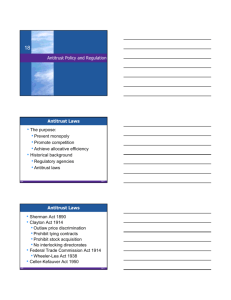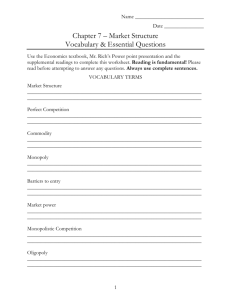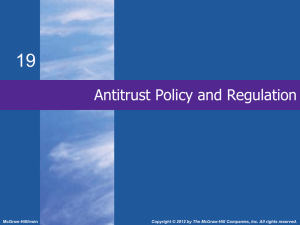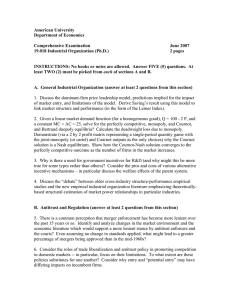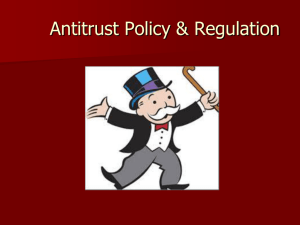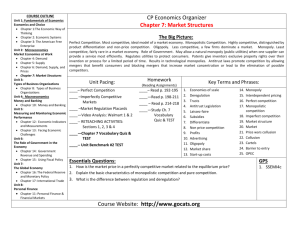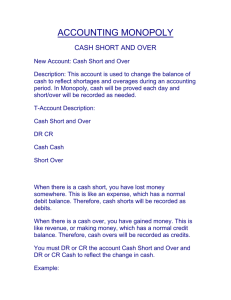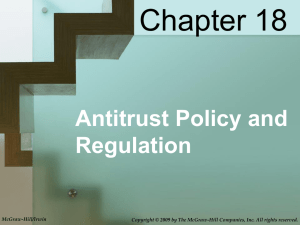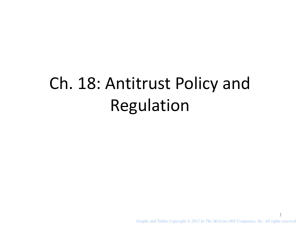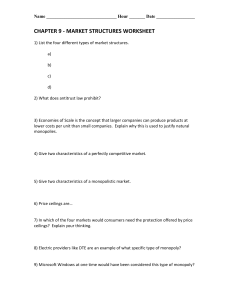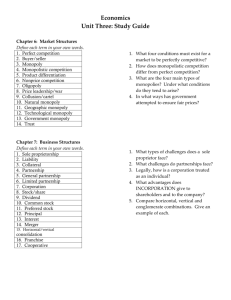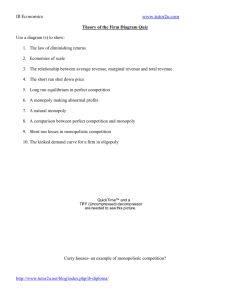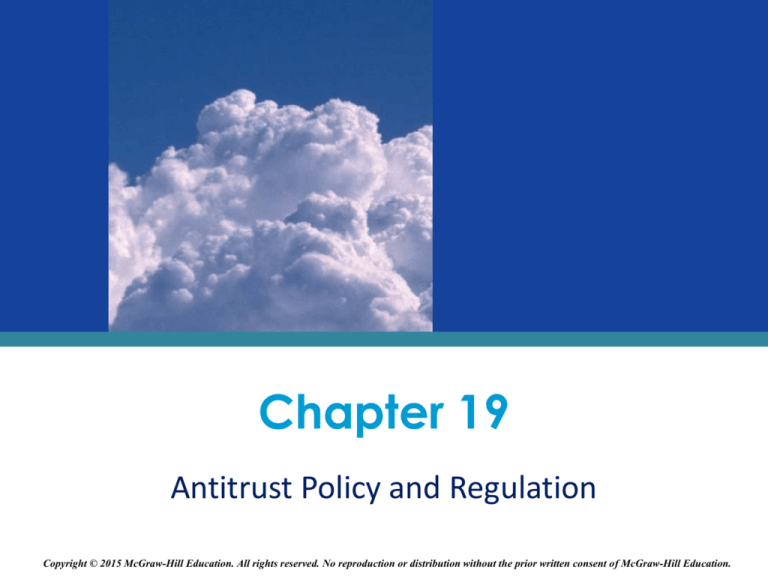
Chapter 19
Antitrust Policy and Regulation
Copyright © 2015 McGraw-Hill Education. All rights reserved. No reproduction or distribution without the prior written consent of McGraw-Hill Education.
Antitrust Laws
• The purpose:
• Prevent monopolization
• Promote competition
• Achieve allocative efficiency
• Historical background
• Regulatory agencies
• Antitrust laws
LO1
19-2
Antitrust Laws
• Sherman Act 1890
• Clayton Act 1914
• Outlaws price discrimination
• Prohibits tying contracts
• Prohibits stock acquisition
• No interlocking directorates
• Federal Trade Commission Act 1914
• Wheeler-Lea Act 1938
• Celler-Kefauver Act 1950
LO1
19-3
Antitrust Policy: Issues and Impacts
• Issues of interpretation
• Monopoly behavior vs. Monopoly structure
• 1911 Standard Oil Case
• 1920 U.S. Steel Case
• 1945 Alcoa Case
• Relevant market
• 1956 DuPont Cellophane Case
• Issues of enforcement
LO2
19-4
Effectiveness of Antitrust Laws
• Monopoly
• AT&T
• Microsoft Case
• Mergers
• Horizontal merger
• Vertical merger
• Conglomerate merger
LO2
19-5
Mergers
• Merger guidelines
• The Herfindahl Index
• Price fixing
• Price discrimination
• Tying contracts
LO2
19-6
Industrial Regulation
• Natural monopoly
• Economies of scale
• Public utilities
• Electricity, water, gas, phone
• Solutions for better outcomes
• Public ownership
• Public regulation
• Public interest theory of regulation
LO3
19-7
Problems with Industrial Regulation
• Regulators establish rates to give natural
•
•
•
•
LO3
monopoly “fair return”
No incentive to reduce cost
X-inefficiency
Perpetuating Monopoly
• Conditions of natural monopoly can end
Legal Cartel Theory of Regulation
19-8
Deregulation
• Began in the 1970s
• Has produced large net benefits for
•
LO3
consumers and society
Industries deregulated include:
• Airlines
• Railroads
• Telecommunications
• Electricity
19-9
Social Regulation
• Concerned with the conditions under which
•
•
•
LO4
goods and services are produced
Impact of production on society
Physical qualities of goods
Applied “across the board” to all industries
19-10
Social Regulation
•
•
•
•
LO4
Optimal level of social regulation
In support of social regulation
Criticisms of social regulation
Two reminders
• There is no free lunch
• Less government is not always better than
more
19-11
United States vs. Microsoft
• Charged in May 1998 under the Sherman Act
• Accused of having a “Windows” monopoly
• District court findings:
• Used anticompetitive means
• District court remedy
• Appeals court ruling
• Final settlement
19-12

